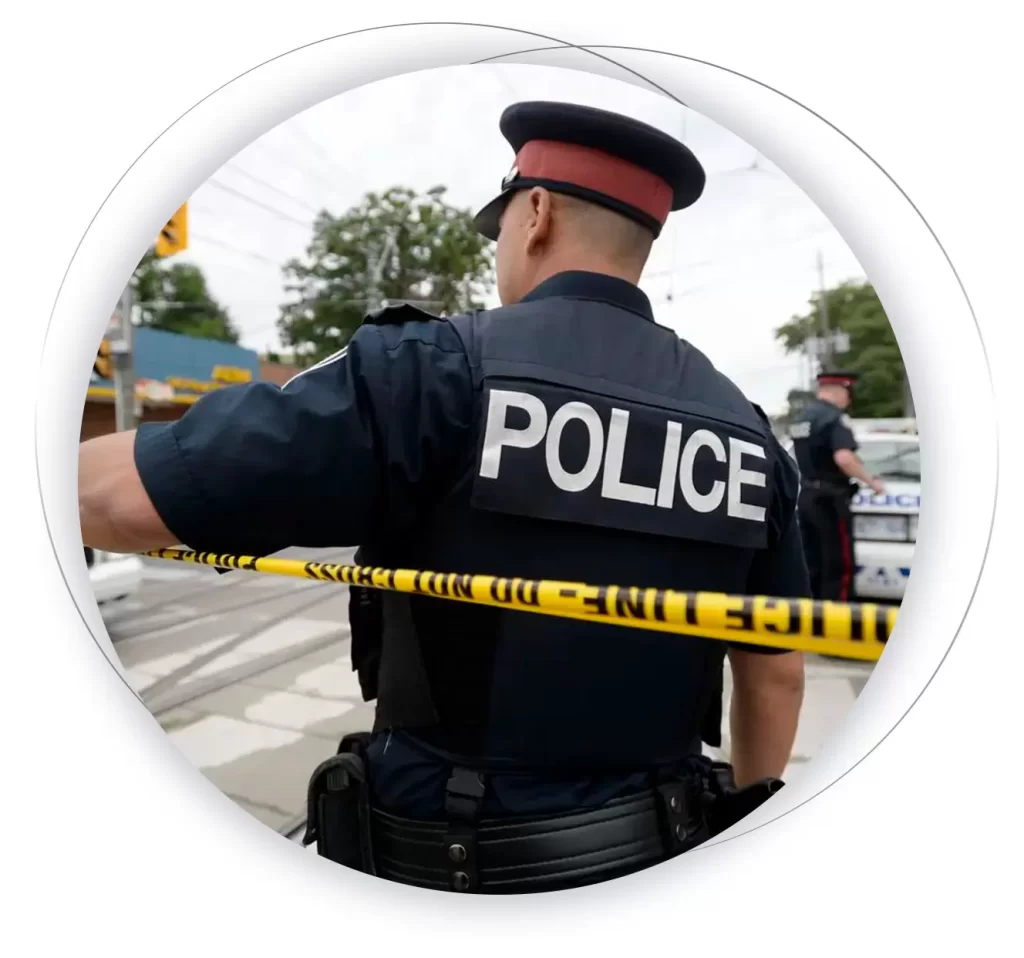Psychotherapy for First RespondersF.A.Q
What happens during the free discovery call?
Although this is NOT a session, it gives you an opportunity to ask questions and get a better understanding of the practice and what treatment might look like. It is like watching a movie trailer and deciding whether you want to go.
What can I expect to achieve in psychotherapy?
Although some sessions can be tougher than others, the general purpose is to help you work through (1) difficult emotions, (2) identify potentially distorted thoughts, and (3) correct possibly destructive behaviours. This often involves challenging core beliefs that might be problematic.
When should I see a psychotherapist?
There are some First Responder who find a therapist the same way they buy insurance. They find one they are comfortable with when things are alright, so they have one in case shit hits the fan. Others see a therapist when something causes distress and interferes with some or most part of their life. For example, this might be when they are struggling to cope after multiple traumatic events, transitioning out of service, or facing difficulties in their marriage.

How often do I have to come in for psychotherapy?
This depends on your goals in therapy. There are some First Responders who come in once a month, every couple of months, or as needed as part of a “check-up from the neck-up.”
When it comes to struggling with symptoms of anxiety, depression, PTSD, or anger management, for example, how severe the symptoms are and what life events are occurring can all effect the frequency of sessions and how long treatment lasts.
Psychotherapy is also more beneficial when activities and exercises are incorporated outside of sessions into daily life.
What is the difference between in-person and remote sessions?
It really depends on preference and practicality. This is why we leave it up to you.
Some find it more comfortable and convenient from home. Having the option for therapy online can help reduce barriers to accessing treatment because of distance, physical limitations, or feeling uncomfortable going to a public place.
Others find remote less than convenient or comfortable. Maybe it is because family is around, or they don’t want to bother with possible reception or connection problems and dealing with video and microphones on their computer. Others find they get more out of sessions when sitting in the same room as their therapist.
Do psychotherapists prescribe medication?
Psychotherapists DO NOT prescribe medication but can arrange an assessment with a psychiatrist who can. Normally, this can be done in two (2) to three (3) months depending on availability.

No Show & Missed Appointments
Aside from medical emergencies, if you make an appointment and do not call to cancel at least twenty-four (24) hours in advance, your credit card will be charged in full for the missed appointment. No refunds will be given. If you repeatedly miss your scheduled appointments, your practitioner may decide to terminate treatment as well.

Care & Coverage
Our services are NOT covered by OHIP. However, we are covered by most private health insurance. Many of our services can also be covered by direct billing, such as through Blue Cross. Richard is registered as a CAF, RCMP, and VAC provider. While many other insurance companies are covered, they might not be billed directly. If not billed directly, a receipt will be provided to you by email so you can request reimbursement from your prover. You will be responsible for making those payment. We accept Visa, Mastercard, American Express and Interac.
If you have any questions about coverage, please speak to us or with your provider directly.

What are my rights?
You have the right to have everything you say at each session kept confidential. However, limitations of confidentiality include:
- If there is a high risk of suicide or self-harm that may result in unintentionally killing yourself, we have an obligation to call 911 to ensure your safety.
- If you indicate a real intent to physically harm or kill another person, we are required to call 911 to ensure their safety.
- If you inform us of a child, an individual over the age of sixty-five (65), or someone of diminished capacity being physically, sexually, or emotionally abused, we are required to call 911 to ensure their safety.
- If another healthcare professional has sexually assaulted you, breached your confidentiality, or engaged in other disreputable behaviours, a call to their professional college that governs their license is mandatory. Your clinical file will become subpoenaed for all court matters involving you.
- If you provide consent to your lawyer and/or insurance company that your clinical file or reports regarding your treatment progression can be shared with them.
- If your clinical notes or a practitioner is subpoenaed.
The above is not an exhaustive list. We are committed to our ethical responsibilities as outlined by our regulatory colleges and affirmed by the laws of Canada.
Fees
Our fees are usually covered by Medavie Blue Cross and VAC. Otherwise, our out-of-pocket fees for our services can be found below.
| Discovery Call 15-minutes | FREE |
| Individual FRMV – 50-minutes | $160 |
| Individual FRMV – 110-minutes | $320 |
| Couples Counseling FRMV – 110-minutes | $340 |
| Family Therapy FRMV – 110-minutes | $340 |
As of June 20, 2024, psychotherapy/counselling therapy services rendered by psychotherapists and counselling therapists are exempt from the GST/HST
Please note that all new patients require a credit card on file in order to book their first appointment.
* All fees are subject to change without notice.
